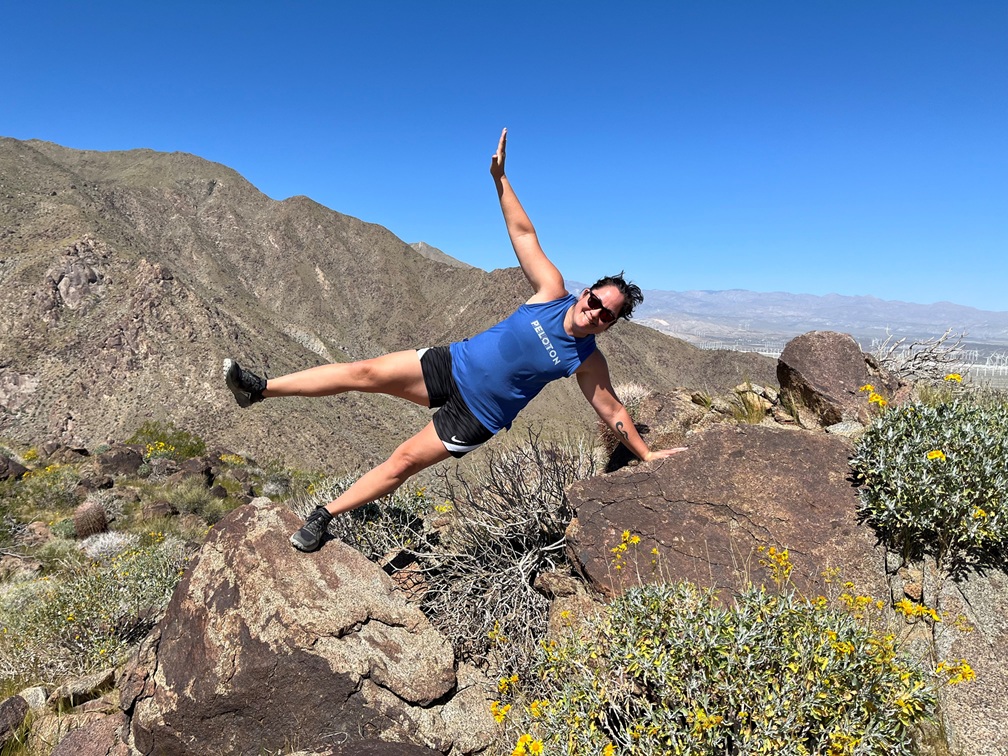
Dr. Terri Laguna is a professor in the Department of Pediatrics and division head of Pulmonary and Sleep Medicine at Seattle Children’s. She conducts research at the Center for Respiratory Biology and Therapeutics at Seattle Children’s Research Institute, focused on early lung disease in cystic fibrosis. Dr. Laguna is a national mentor for the Cystic Fibrosis Foundation, and has been recognized five times by pediatric residents as an Outstanding Faculty Educator. She is active in diversity, equity, and inclusion (DEI) initiatives locally, regionally, and nationally.
Can you share a little about your background and what inspired you to pursue a career in academic medicine?
I am originally from Arizona, and both my parents are Mexican. There are no physicians in my immediate or extended family – I’m the first! My career path was inspired by my personal battle with severe asthma and my obsession with sports. I was hospitalized frequently in my first 10 years of life, including a stay in the PICU on a ventilator for a week when I was eight years old. It was then that I decided I wanted to be a doctor who helped children control their asthma so they could play whatever sports they wanted (I didn’t know the words “pediatric pulmonologist” back then). Luckily, I was able to navigate the long training journey to reach my goal (and get my asthma under control). I absolutely love my job and wouldn’t trade it for anything.
Have you had any Latinx mentors or role models during your career? If so, how did they impact your journey?
I have multiple intersectional identities – I identify as a woman, Mexican, and a member of the LGBTQIA+ community. I never saw anybody who looked like me or was like me throughout my training career. This lack of representation in academic medicine has actually served as a driving force for me throughout my career. I made the decision to be my authentic self when I entered medical school and have made choices to be visible and present in as many spaces as I can. There are just so few Latinas in academic medicine, let alone Latinas in leadership positions. Yet it is so important to have representation in leadership.
What advice or encouragement would you offer to Latinx students or young professionals who are thinking about a future in medicine or science?
Mentorship, mentorship, mentorship! Having help and support from people who have walked the path you wish to walk or hold the job you would love to have is key. It would be ideal to identify a mentor who looks like you; however, there are so few of us that we are often difficult to find. That said, there are plenty of individuals out there willing to help and support Latinx students or young professionals. Send emails to individuals asking to meet for coffee. Go up and introduce yourself to people you hear talk, or see at conferences. We are in academic medicine because we love to mentor and support others. I would also encourage others to be proud of who they are – stand tall and don’t give ground when you encounter obstacles or resistance.
What advice would you give to someone who might be the “first” or “only” Latinx person in a space?
You belong exactly where you are. You have earned the right to be there. Don’t ever let anybody (including social media) tell you otherwise.
Looking back, what are some of the career moments you feel most proud of?
I played Division I college softball for the University of New Mexico. During my freshman year, we played Fresno State (ranked in the top 10) at home. I came to bat in the bottom of the ninth inning with the bases loaded and two outs – and we were down by three. I hit a grand slam homerun to walk it off and win the game. This was by far the biggest career moment in my life!!!
What’s ahead for you — are there goals or dreams you’re still excited to work toward?
I’m not sure what’s next. I love where I am and what I get to do every day. It is important for me to have impact – to positively influence and advocate for individuals from marginalized communities. I get to do that at a local, regional and national level with the opportunities I have. It’s even more important now with all of the negative messaging focused on the Hispanic community from those in power.
If you could give your younger self one piece of advice, what would it be?
That you will find the strength and learn the tools to fight back.